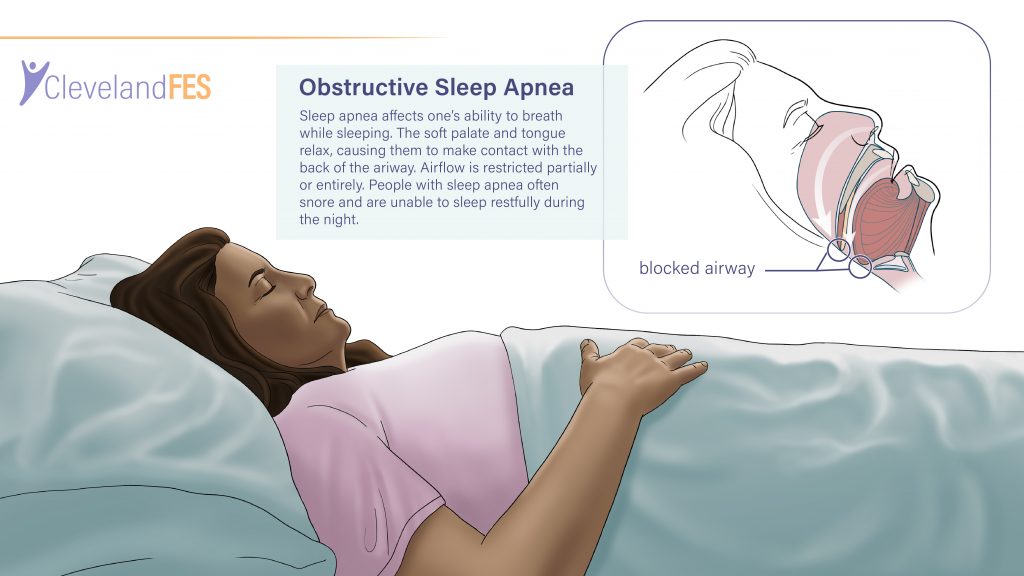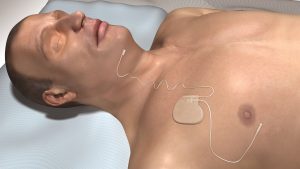Sleep apnea is a common disorder in which an individual has one or more pauses in breathing or shallow breaths while he or she sleeps. Breathing pauses can last from a few seconds to minutes, generally occurring 30 or more times an hour.

Generally, sleep apnea is a chronic condition which causes disruption to one’s sleep; when an individual’s breathing pauses or becomes shallow, he or she will often move from a deep sleep to a light sleep, resulting in poor sleeping quality, making one tired during the day. Sleep apnea is the leading cause of excessive daytime fatigue.
The most common type of sleep apnea is obstructive sleep apnea, a condition in which the airway collapses or becomes blocked during sleep, causing shallow breathing or breathing pauses, and oftentimes loud snoring. Because doctors usually can’t detect the condition during routine office visits, and no blood test can help diagnose the condition, sleep apnea frequently goes undiagnosed.
Untreated sleep apnea can increase the risk of high blood pressure, heart attack, stroke, obesity, and diabetes. It can also increase the risk of, or worsen, heart failure, increase the likelihood of arrhythmias, or irregular heartbeats, and increase the chance of having work-related or driving accidents.
Lifestyle changes, mouthpieces, surgery, and breathing devices can successfully treat sleep apnea in many individuals.

